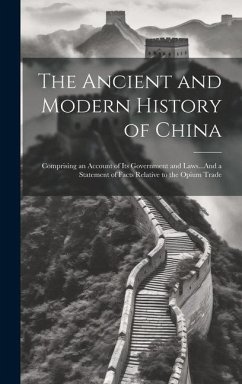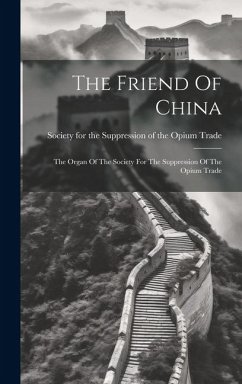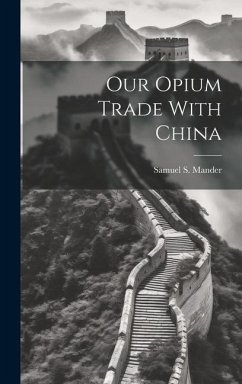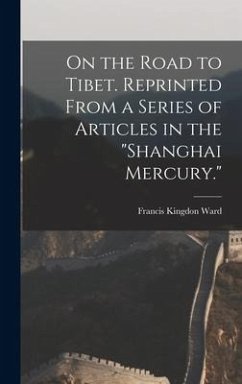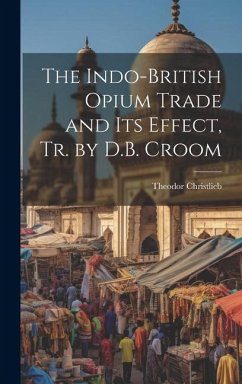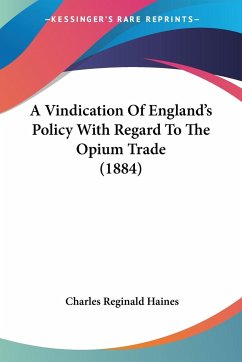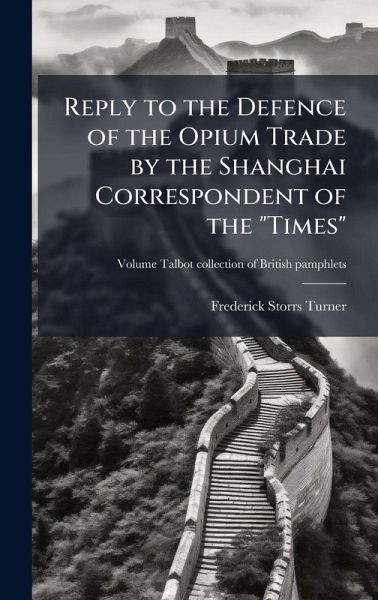
Reply to the Defence of the Opium Trade by the Shanghai Correspondent of the "Times"
Versandkostenfrei!
Versandfertig in über 4 Wochen
25,99 €
inkl. MwSt.
Weitere Ausgaben:

PAYBACK Punkte
13 °P sammeln!
In "Reply to the Defence of the Opium Trade," Frederick Storrs Turner offers a robust rebuttal to arguments made in defense of the opium trade by the Shanghai correspondent of The Times. Published in 1881, this pamphlet provides a critical perspective on the controversial trade practices of the British Empire in China. Turner challenges the moral and economic justifications presented by proponents of the opium trade, highlighting its devastating impact on Chinese society. This work serves as a valuable historical document for understanding the complexities and ethical dilemmas surrounding colo...
In "Reply to the Defence of the Opium Trade," Frederick Storrs Turner offers a robust rebuttal to arguments made in defense of the opium trade by the Shanghai correspondent of The Times. Published in 1881, this pamphlet provides a critical perspective on the controversial trade practices of the British Empire in China. Turner challenges the moral and economic justifications presented by proponents of the opium trade, highlighting its devastating impact on Chinese society. This work serves as a valuable historical document for understanding the complexities and ethical dilemmas surrounding colonialism and international commerce in the 19th century. It offers insights into the perspectives of those who opposed the opium trade and questioned the motives behind British imperial policies. This work has been selected by scholars as being culturally important, and is part of the knowledge base of civilization as we know it. This work was reproduced from the original artifact, and remains as true to the original work as possible. Therefore, you will see the original copyright references, library stamps (as most of these works have been housed in our most important libraries around the world), and other notations in the work. This work is in the public domain in the United States of America, and possibly other nations. Within the United States, you may freely copy and distribute this work, as no entity (individual or corporate) has a copyright on the body of the work. As a reproduction of a historical artifact, this work may contain missing or blurred pages, poor pictures, errant marks, etc. Scholars believe, and we concur, that this work is important enough to be preserved, reproduced, and made generally available to the public. We appreciate your support of the preservation process, and thank you for being an important part of keeping this knowledge alive and relevant.



